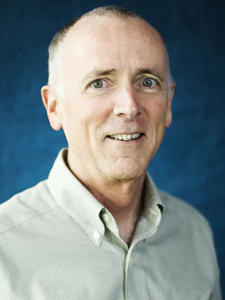MD2K’s first year yields gains toward goal of precision medicine
San Diego, Calif., Oct. 14, 2015 — As its first year wraps up, the Center of Excellence for Mobile Sensor Data-to-Knowledge (MD2K) has made significant progress towards its goal of using mobile sensor data to realize precision medicine.

The MD2K Center is tasked with developing the means to gather, analyze, visualize and interpret health-related mobile sensor data. This capability is critical to discovering new insights on the role of behavioral and environmental context in the onset and progression of disease. The ultimate goal is to develop timely and personalized mobile health interventions for early detection and prevention of adverse health events, which will help realize the vision of Precision Medicine articulated by President Obama in January 2015.
University of California, San Diego researchers Kevin Patrick and Fred Raab of the Department of Famiily Medicine and Public Health are participating in the MD2K initiative through the contribution of software and algorithms that will be used in interventions that require geo-location of participants. This builds on research conducted in their group at the Qualcomm Institute since 2007 with support from the National Institutes of Health Gene-Environment Initiative.
“The MD2K initiative is a particularly exciting extension of our research and promises to set the stage for several new projects in the future,” said Dr. Patrick, who is also the director of the QI Center for Wireless and Population Health Systems.
Also, studies are underway in MD2K’s key research areas, Congestive Heart Failure management (at the Ohio State University) and smoking cessation (at Northwestern Medical School and Rice University). All the models and markers developed by MD2K will be included in the open-source software (for mobile phone and cloud) soon to be released by MD2K, that can be used widely by researchers, industry professionals, or individuals to collect, analyze, visualize, and interpret mobile sensor data for health.
The MD2K team comprises 20-plus faculty, 20-plus students, four staff and three software engineers from 12 institutions and the non-profit Open mHealth. The center is one of 11 national Centers of Excellence funded through the National Institutes of Health (NIH) Big Data to Knowledge (BD2K) initiative, designed to support advances in research, policy, and training needed for the effective use of Big Data in biomedical research.
Related Links
Media Contacts
Tiffany Fox, (858) 246-0353, tfox@ucsd.edu
